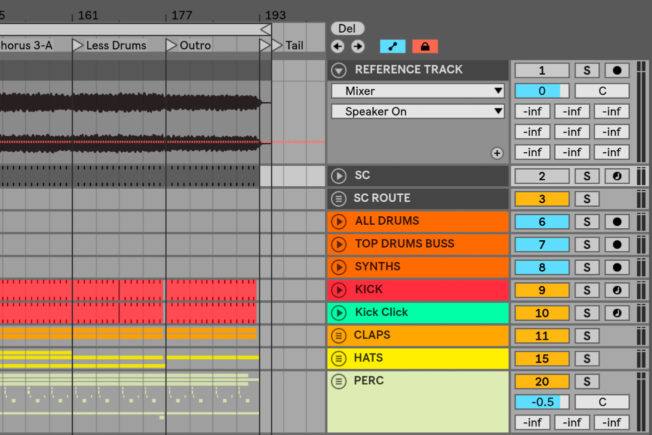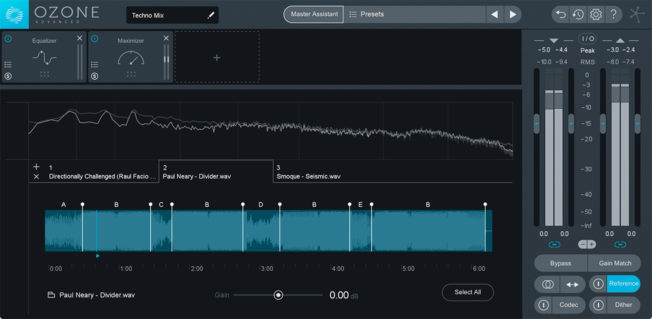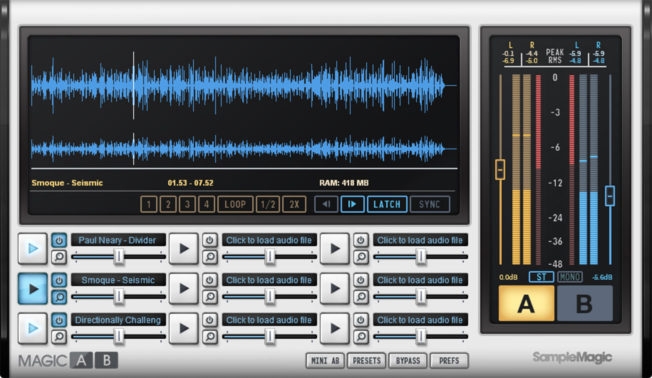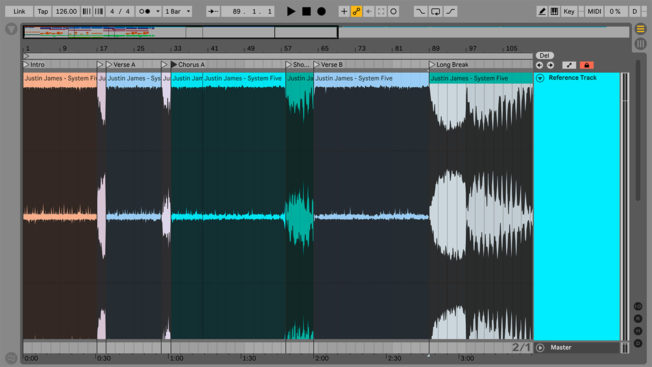What are reference tracks? This guide introduces you to reference tracks and explains how they will help you achieve better mixdowns and arrangements.

What is a Reference Track?
Reference tracks are professionally mixed and mastered songs that you use as a tool to either measure your mix against or use as a roadmap to guide your arrangement.
Using reference tracks when mixing or mastering your song ensures that your mix is up to professional standards. They also help you develop music that translates well on different playback systems and in different environments.
Reference tracks are also incredibly helpful when arranging your song. Referencing the arrangement of another song helps you visualize the different sections of that song. This visual guide acts as a roadmap to structuring your song and eliminates the guesswork.
Choosing a Reference Track

It is essential to choose appropriate references for the song that you are mixing or using as an arrangement guide. When selecting reference tracks for your specific session, use songs that you know well. Furthermore, be sure to choose a reference track that is sonically similar and in the same genre as the song you are mixing. Utilizing a techno reference when mixing a future house track will mislead your decision making. You can also select references that have specific elements you like. For example, you could use a reference track that has awesome sounding drums or vocals you would like to match. You can use different references to accomplish different goals.
When mixing, reference tracks must also translate to any speaker system and sound great in a variety of listening environments. Try to use songs that are professionally mixed, mastered, and released. When choosing a reference, quality matters. You will achieve better results comparing your mix to a high-quality WAV file than an MP3 or other compressed formats. It is best to use the highest quality material when referencing.
It is also necessary to save a collection of reference mixes. Use these references consistently as you continue to work in different listening environments. As you get to know these references, you will be able to mix with more accuracy on various monitoring systems and room acoustics. This approach helps to avoid problems when mixing in unfamiliar studios.
Mixing with Reference Tracks

Referencing is one of the best and most helpful mixing techniques to learn. Comparing your mix to a commercial ready track will help you achieve more professional-sounding mixdowns and masters. Mixing music can sometimes seem overwhelming and hard to know where to start. It’s also easy to get lost in all the technical jargon and the enormous selection of plugin options. Moreover, mixing can be exhausting if you’re trying to make mix decisions without a clear goal or something to let you know if your mix sounds good or not.
People of all skill levels use reference tracks to guide their mixdowns and masters. Even veteran engineers use reference mixes. They provide a tonal map that saves time and enables you to work confidently. Reference tracks also give you a different perspective on your mix. Quickly switching between your mix and a commercial ready mix will help you identify what’s lacking and reveal inconsistencies that you may not have noticed.
Below are some benefits of using reference mixes:
- They allow you to compare your mixdowns or masters to professional-sounding songs.
- Referencing helps you focus on the final goal.
- They provide a tonal map to guide your mix decisions.
- Over time, you become more proficient and confident at mixing.
- Referencing reduces guesswork and decision fatigue.
- They help you achieve more translatable mixes that sound great on various speaker systems.
It’s important to emphasize again that reference tracks are meant to guide your mix decisions. Try not to replicate the reference exactly, or you could do more harm than good. Many engineers will use multiple tracks to get a general idea where to take their mixes instead of focusing on the mix decisions of one track.
When comparing your mixdowns or masters to reference tracks, focus on the various elements, loudness, balance, width, depth, and other key aspects of the mix. Below are a few suggestions to listen for:
- Loudness: How load is the overall level compared to the reference mix?
- Width: Listen to where particular elements are panned in the mix.
Also, pay attention to how wide the overall mix is in the stereo field. - Depth: Listen for front-to-back placement. For example, elements that are either louder, brighter, or have less reverb will sound closer and more up-front in the mix. Conversely, sounds that are quieter, have more low-end or reverb applied will sound farther away.
- Balance: Compare how loud various elements are to each other and balance the levels. Also, listen to the overall tonal balance. For example, is there too much low-end or frequency masking?
Arrangement with a Reference Track

Using a reference track as a visual guide to aid in the arrangement of your song structure is another helpful technique. Building out a solid song structure with unique variations can sometimes be challenging.
To assist in your decision making, drop in one of your favorite songs into Ableton Live’s and use locators in Arrangement View to mark all the sections of that song. You can also go further by color-coding and naming the different parts. Basically, you are deconstructing a song and using it as a roadmap to visualize essential sections such as the intro verses, choruses, bridges, breaks, and the outro. Preparing a visual guide is not only super helpful but also very educational.